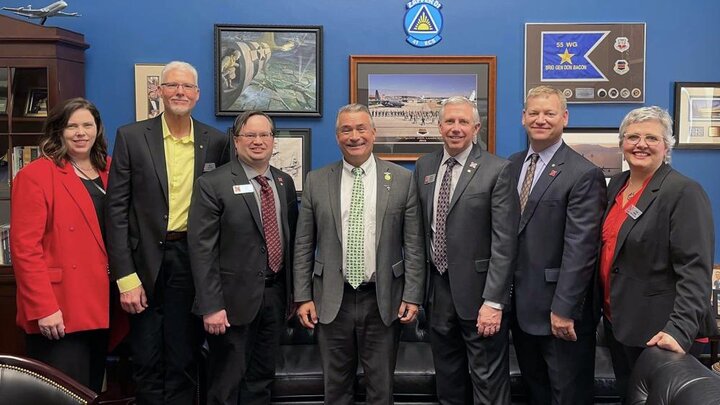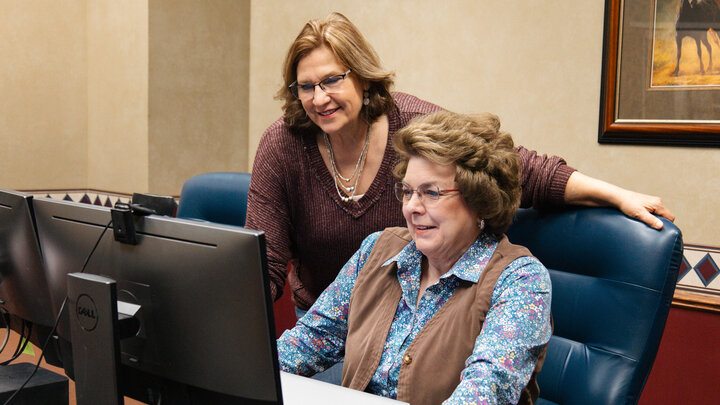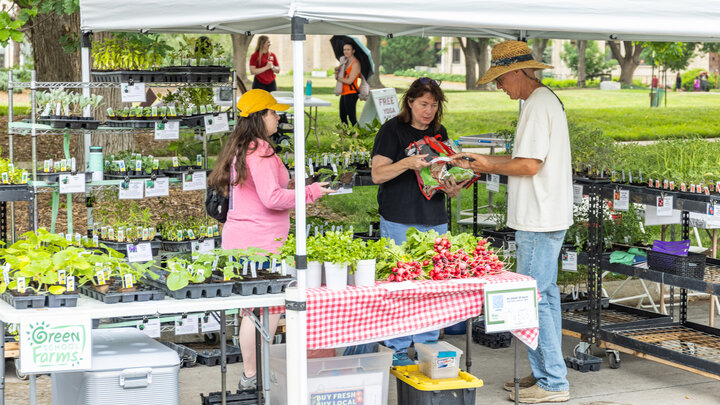I have been busy during the last couple of months doing advocacy for Extension. What does that mean? Well, it means I have traveled to Lincoln and Washington D.C. to speak with legislators about Nebraska Extension and our county commissioners. It really isn’t a hard job to ask for support for Nebraska Extension. With offices in almost every county and a long history of important research and programs delivered to the public, nearly everyone has heard of Extension and has had good experiences with them.
I wasn’t doing advocacy alone. I went with a group. During my county visits, members of our local Extension Board (for which we are looking for a few members in the coming year in both Nuckolls and Thayer counties) came to talk about our local Extension programs. During the visits with our state representatives, we had members of our NACEB (Nebraska Association of County Extension Boards) group, our Engagement Zone Coordinator, and other Extension Educators with us. During our federal visits we had several Engagement Zone Coordinators, our Associate Dean, the NACEB President, and one other Extension Educator.
During each of these visits we told stories about how Extension helps people in the state. I try to share stories from RPN in this column each month. Those are the types of stories that we provide to our supporters as well. Before we visited our representatives, we investigated their legislative interests and tried to find Extension stories that would be meaningful to them. We even tied one story to a business that one of them tweeted about, because Extension had worked with their business in the past. Our conversations were all loosely prepared in advance. Our meetings were scheduled and all had time limits. Sometimes we would talk to a staffer, then the representative, or sometimes just a staffer. Each team member had a role in our meetings. Sometimes my role was to just be quiet, which was fine with me. Other times I had to tell a story about my work. We also had someone prepared to open the conversation, talk about Extension funding and we had someone ready to close the conversation.
Part of advocacy is knowing where the funding for Nebraska Extension comes from. Nebraska Extension is funded through a wide range of ways. We receive significant funding from our counties, which provide for our offices, equipment, furniture, mileage, office managers, assistants, and other items. The State of Nebraska provides funding for the University of Nebraska, and part of that money goes to Extension. That provides funding for administration and our Extension Educators. The third major contributor is the federal government. Extension programs nationwide receive funding from the Smith-Lever Act that is included in the Farm Bill each year. Some Extension Educators are funded through this act. These three funding areas provide a solid base for Nebraska Extension to provide basic services throughout the state. It also gives us the flexibility to respond to emergencies, like the floods in the recent past. The final way that Nebraska Extension receives funds is through grants. These are one-time funds that help us to do extra work above and beyond what we normally do. This is where much of our professional development funding comes from.
As you can see it takes a lot of preparation to present to all of these representatives, and it is something that we do each year with our state and federal representatives. We meet with our local county officials much more often. Advocacy isn’t all hard work, though. I enjoyed being able to visit our State Capital Building and Washington D.C. During our advocacy day in Washington D.C. I walked nearly 7 miles. We had to go back and forth between the House and Senate offices. Even though they are just ‘office buildings’ they are interesting to look at, and as you travel between them you also get to see the Capital Building, Supreme Court, and other monuments in the area. Advocacy is exhausting, but it’s a fun experience, and it provides a solid financial foundation for Extension.
If your community could benefit from any of the Rural Prosperity Nebraska or Nebraska Extension ideas that I’ve discussed in this column, please reach out to me. I’d love to speak to your community about these topics. You can reach me at jason.tuller@unl.edu or at the Thayer County office at 402-768-7212.
Jason Tuller is an Extension Educator for the University of Nebraska–Lincoln. He works in the Rural Prosperity Nebraska program and covers ten-county area including Kearney, Adams, Clay, Fillmore, Saline, Franklin, Webster, Nuckolls, Thayer, and Jefferson Counties.




